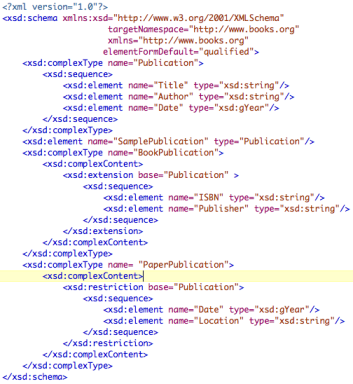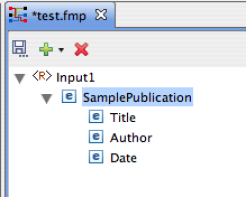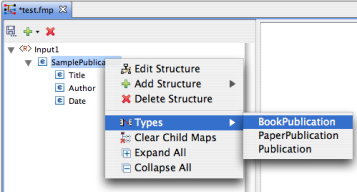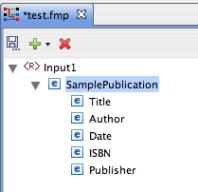When a complex type in an output/input structure has derived types, either by extension or restriction, the user can choose a derived type and the mappings can be defined using elements of selected derived type.
This is explained with an example. Screenshot of the sample schema used is shown below.

Figure 1: Schema with derived types
The schema provided above contains an element SamplePublication of type Publication. The type Publication has two derived types: BookPublication (extension) and PaperPublication (restriction). When the schema is loaded in Mapper, the element SamplePublication is shown in Mapper.

Figure 2: Sample Publication with default type
Since the type Publication has derived types, user can change the type of the element SamplePublication. All the derived types will be shown when right-clicked on the SamplePublication element and the user can select the required derived type as shown in the figure below.

Figure 3: Available derived types
When a different type is selected, the structure will be refreshed to show the selected type.

Figure 4: SamplePublication element when BookPublication type is chosen
Mappings can be defined assuming that the element SamplePublication is of BookPublication type.